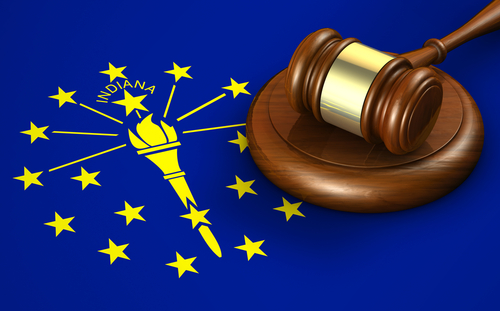Baker who would not decorate a cake with anti-gay slurs faces civil rights complaint

Image from Shutterstock.
Colorado officials are again dealing with a baker refusing a customer’s request for a cake having to do with same-sex relationships, but with a different twist. A suburban Denver man has complained that by not agreeing to decorate a cake with anti-gay slurs and images, a baker engaged in religious discrimination against him, the Associated Press reports.
Marjorie Silva, owner of Azucar Bakery in Denver, says she is the subject of a confidential review by Colorado’s Civil Rights Division on the complaint. Silva told the AP that her bakery took an order for some Bible-shaped cakes for a customer. Then the man handed her a list of anti-gay phrases and slurs he wanted written on the cakes, and asked her to create an image on it with two men holding hands but crossed over by an “X.” Silva said the man would not allow her employees to copy the list, and refused to read the words out loud.
Silva says she told him she would bake and frost the cakes but would not write the words on them, and offered to give him the icing and pastry bag to do it himself. The man, Bill Jack, then filed a religious discrimination complaint with the state’s Department of Regulatory Agencies.
Jack is a founder of the Worldview Academy, which offers leadership camps to Christian teens. He gave a statement to local television station KUSA, saying he “was discriminated against by the bakery based on my creed.”
The matter is drawing comparisons to an ongoing case in Colorado concerning a baker who in 2012 refused to make a wedding cake for a gay couple, citing his religious beliefs, the Washington Post reports. That baker, Jack Phillips of Masterpiece Cakeshop, has appealed a ruling by the state Civil Rights Commission, which upheld an administrative law judge’s decision that Phillips violated the state’s public accommodation law requiring businesses to serve all customers.
The Post reports that the administrative law judge in Phillips’ case, Robert N. Spencer, drew a distinction between refusing to inscribe a message on a cake, and refusing to serve an individual at all. Spencer wrote in his decision (PDF) that arguments comparing Phillips’ case to a black baker refusing make a cake for the Aryan Nation with white-supremacist messages were not relevant, saying that in that hypothetical “it is the explicit, unmistakable, offensive message that the bakers are asked to put on the cake that gives rise to the bakers’ free speech right to refuse. That, however, is not the case here, where respondents refused to bake any cake for complainants regardless of what was written on it or what it looked like.”
University of Denver law professor Nancy Leong told KUSA that in Silva’s case, she did not see how the law was violated. “This is not a situation where a business owner denied service to somebody,” Leong told the station. “She offered to accommodate him to the extent that she could. In fact, requiring her to write that message would infringe on her own free speech rights.”
More than a half-dozen business owners around the country have declined various services for same-sex weddings—such as bakers, florists and photographers—in New Mexico, Washington, Oregon, Vermont, Idaho and Nevada, the New York Times reported last month. Most of these cases are being fought by dueling legal groups: the American Civil Liberties Union in support of same-sex marriage, and the Alliance Defending Freedom, which opposes it, the Times reported.
The battles are playing out in legislatures as well as in the courts. On the heels of the ruling that by not making wedding cakes for same-sex couples Phillips violated the law, Republicans in Colorado’s legislature are mulling a change in the state law which requires that businesses serve people regardless of their sexual orientation, the AP reports.
Republican Sen. Kevin Lundberg told the AP that this latest case shows a “clash of values” that indicates the public accommodation law is not working, and also referenced Phillips’ case.
“The state shouldn’t come in and say to the individual businessman, ‘You must violate your religious—and I’ll say religious/moral convictions,” Lundberg said, noting that Silva thought the anti-gay slurs violated her moral convictions.
The ACLU’s legal director in Colorado, Mark Silverstein, told the AP, “There’s no law that says that a cake-maker has to write obscenities in the cake just because the customer wants it.”



